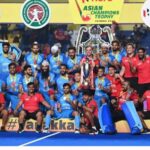California Scholarships for Students
Disability Scholarships for California Students California scholarships for students with disabilities enable financial support and resources to help students with a physical, mental or learning disability pursue higher education so they reach their career goals. Such scholarships can alleviate some of the barriers students with disabilities have when accessing critical resources and networks not normally available to them.
Disability Specific or Related Scholarships
Numerous public and private organizations provide scholarships that are specifically designed for students with disabilities. These scholarships are meant for students who may have additional obstacles to accessing higher education, like mobility, accessibility or medical costs.
California scholarships for disabled students:
California State Rehab Agency (DOR) Funds: The California Department of Rehabilitation provides funds to students with disabilities excel in postsecondary education or training. The award is applicable for tuition, fees and other school expenses.
Disabilities Scholarship Program from The San Diego Foundation—Financial assistance to students attending California postsecondary institutions with disabilities;
American Association on Health and Disability Scholarship: For students with disabilities seeking a health-related career Departure of this scholarship helps with educational expenses associated with their career goals
Disability Specific Scholarships
Certain scholarships target only those students with a specific disability, therefore creating unparalleled support for these individuals when needed. In addition, these scholarships usually offer other resources such as specialized counseling, support for finding a suitable school or faculty and technology or tools that help you learn.
Examples include:
The National Federation of the Blind Scholarship: Open to individuals who are blind, these awards can be used by students attending postsecondary education. This opens doors for opportunities that may include professional development and a financial award.
The Ann McLaughlin Korb Memorial Scholarship– A scholarship established to support students with hearing disabilities who are pursuing a degree in communication disorders or related fields.
Benefits Beyond Financial Aid
Scholarships for students with disabilities provide more than a simple monetary drain. Several of these scholarships are tethered to mentorship, internship placements and counselling that help students chart their academic and employment journey after. For example:
Assistive Technology: Having access to assistive technology can make a huge difference in skills. Some scholarships include this provision as well. These can be assistive devices or software for reading, writing and even to help get around.
Academic and Career Support: Several scholarship programs centered on disabilities offer not only financial assistance but also ongoing academic support and career counseling to help students maximize their education while navigating the workforce.
Networking Opportunities: Students receiving scholarships for disability are often linked to a professional network that advocates for people with disabilities, leading to internships, job offers and mentorship in fields that may be particularly open to diverse abilities.

WHO SHOULD APPLY & HOW TO APPLY?
Scholarships for students with disabilities can play a role in helping. But anything else (most grants will need:
Proof of Disability: This could be documentation from a medical professional or disability services office, or evidence that the person is receiving benefits based on their disability from a government entity.
Inclusion in a Post-Secondary Program Most scholarships require that students be enrolled in or have plans to enroll in a degree or certificate program at an accredited college or university.
Academic Standing (GPA): Some scholarships will base their eligibility requirements on a student’s academic performance, while others may be less stringent and focus more on need, individual backgrounds, or career aspirations.
Application Tips:
Gather Proof: Many scholarships will require you to provide proof of your disability, so be sure to have your documentation on hand. This can be for example medical records or letter from a specialist.
Utilize disabled services: Most colleges and universities have some sort of disability services office that can help with locating scholarships and completing applications. They can assist you to customize your coursework with appropriate accommodations.
Showcase Your Achievements: When writing scholarship essays, you write about your achievements, where you were strong and how you dealt with difficult situations in life. More scholarship providers look for a student who has shown drive, ingenuity and other factors when it comes to dealing with their disability.
Federal and State Grants for Students with Disabilities
Not only do students with disabilities obtain access to scholarships, they may also qualify for many of the federal and state grants that help pay some of their educational costs:
Federal Pell Grant: For undergraduate students with financial need, including those with disabilities.
Federal Supplemental Educational Opportunity Grant (FSEOG) – Federal program that offers more funds for students with financial need, including those who are disabled.
Cal Grant Program in California: Students with disabilities who attend college in California may qualify for Cal Grants, which can help pay for tuition and living expenses at public and private colleges and universities.
Charitable & Community-Based Scholarships
Numerous nonprofits working to assist people with disabilities provide scholarships for students in college. These awards are usually meant to encourage independence, access to education, and giving students with disabilities the tools they need to be active members of society.
Examples include:
Christopher & Dana Reeve Foundation Scholarships: Provides funding for the students with physical disabilities, especially people who had a spinal cord injury.
DISABLED AMERICAN VETERANS (DAV) SCHOLARSHIP PROGRAM: Provides scholarships for disabled veterans and their children seeking higher education.
Disability Organizations at the State and National Level
There are numerous state and national disability organizations with funds set aside for scholarships to help students with disabilities, particularly in their course of study or career that assists individuals with the same type of condition.
Examples include:
American Association of People with Disabilities (AAPD) Scholarship: For students with disabilities that are seeking higher education and/or career development.
Disability Rights Education & Defense Fund (DREDF): Awards scholarships to those who show interest in the disability rights movement.
Conclusion
California Scholarships for Students with Disabilities — in some cases they can even bring to more academic success and career opportunities Downstate too huh. Scholarships like these can alleviate financial concerns, make essential accommodations and resources accessible, and link students to career development opportunities that enable them to succeed in school and beyond. Through finding scholarships, becoming familiar with their eligibility criteria, and being aware of available scholarship options, students living with disabilities will receive support that can help them meet their educational goals and in turn positively contribute to society through their respective fields.
What kind of scholarships are there for students with disabilities in California?
California Scholarships for Students with Disabilities California has a number of scholarships available that are specifically for students with disabilities – either generally, or more narrowly tailored to specific disabilities. Here are a few of the more well known scholarships for students with disabilities to apply for:
DOR Grants from California Government Vocational Rehabilitiation
Who Can Apply: California students with disabilities who are practically involved by the Department of Rehabilitation.
Description: These scholarships support students to pay for tuition, fees, and other educational-related expenses at accredited postsecondary institutions.
Application instructions: Students apply through the California Department of Rehabilitation local offices, and eligibility depends on financial need as well as educational goals of the student.
Ann McLaughlin Korb Memorial Scholarship
Who is Eligible: This award is available for students who are deaf and hard of hearing who will be entering post-secondary education in communication disorders or a related field.
Details: The Award offers financial assistance to academically-gifted students who are also hearing-impaired and have an ongoing interest in their academic discipline.
Application Process: These are generally accessible via professional organizations that govern the field of audiology or possibly your university disability office.
Open to(for): National Federation of the Blind (NFB) Scholarships
Who Qualifies: These scholarships are available to legally blind students attending postsecondary schools.
Eligibility: The NFB provides multiple scholarships specifically for students who are blind or have visual impairments, including those pursuing college degrees.
How to Apply: Wizkids will register students on the official NFB website where they can learn more about the specific eligibility requirements, deadlines and registration forms.
Scholarship by Christopher & Dana Reeve Foundation
Who can apply: Students who incurred spinal cord injury or paralysis
More information: This scholarship is for those studying at post-secondary institutions with a spinal cord injury. The programme provides financial aid to assist with the cost of tuition and other educational expenses.
Application Procedure: Students can download the scholarship application through the Christopher & Dana Reeve Foundation website.
Disability Services Scholarships from California State University (CSU)
Who Can Apply: Must be a student with a documented disability, attending any of the California State University (CSU) campuses.
Information: Various CSU campuses provide financial aid to students with disabilities. Campus awards vary but generally help students cover their tuition costs as well as books and accommodation.
Application Process: Students should reach out to their campus’s disability services office or financial aid office for more information on available scholarship opportunities.
Disability Rights Education & Defense Fund (DREDF) Scholarship
This scholarship helps students with disabilities who are pursuing postsecondary education and are committed to the disability rights movement.
Description: The DREDF awards financial assistance to students who are likely to inspire others and take leadership roles in the disability advocacy community.
To apply: Apply online through the DREDF website or contact the organization for further information on how to apply.
California Foundation for Independent Living Centers Scholarships (CFILC)
Eligibility: Students with disabilities who are current or prospective higher education students involved in disability advocacy work may apply for scholarships offered by the CFILC.
Please note that the CFILC offering financial assistance for college and vocational programs in California to students with disabilities, with an emphasis on supporting student leadership in the community.
Application Instructions: Visit the CFILC for instructions on how to apply, as well as student application materials and deadlines.
AAPD Disability Scholarship Program
Award Amount: VariesEligibility: Open to students from all types of disabilities pursuing postsecondary education and have demonstrated leadership and participation within the disability community.
More Information: The scholarship combines not only financial assistance but also internships either with AAPD or its partner organizations.
Application Process: Anyone who is interested can contact anytime on the AAPD website and get more details about this scholarship program, their scholarship benefits/application process.
National Multiple Sclerosis Society Scholarship Program
Eligibility: Offered to students with multiple sclerosis who are currently enrolled in postsecondary educational programs.
About: The National MS Society provides a scholarship program for students living with MS or those whose parents have MS and are enrolled in post-secondary education.
Application Procedure: Students can access applications on the National MS Society website where they will find eligibility information and application instructions.
J.F. Shea Therapeutic Riding Center Scholarship
Intended recipients: Students with disabilities who seek to be certified in the fields of therapeutic riding or equine therapy
About the Scholarship: The scholarship targets students with disabilities who are studying equine-assisted therapy, including physical and recreational therapy.
Application process: Contact J.F. Shea Therapeutic Riding Center, or apply throughtheir website
United Healthcare Children’s Foundation Scholarship
Eligibility: Children and young adults with disabilities (including physical and cognitive conditions) for postsecondary education under the age of 26
Description: Funds for students with disabilities who want an education. The foundation essentially provides funding for education-related expenses such as tuition, books or supplies.
Instructions: The application form is available through the United Healthcare Children’s Foundation website, which lists eligibility criteria.
NOD Scholarships (National Organization on Disability)
Level: Undergraduate/Graduate — Students with Disabilities
Info: NOD provides scholarships to improve educational and career opportunities for people with disabilities.
Application Procedure: Detailed information can be found on the NOD website.
Dr. John and Kathy Kregel Scholarship
Target group: Students who have a disability and are studying to work in the field of disability services or similar professions.
Info: The California Association for Postsecondary Education and Disability (CAPED) awards these scholarships to both undergraduate and graduate students interested in a career working with individuals with disabilities.
Application Process: Application through CAPED require statement of purpose and proof of commitment to career in disability services
How to Find More Scholarships
Disability Services Offices at your college or university: Most California universities offer scholarships as well as resources for students who are disabled. One good place to start is by reaching out to the disability services office at your school.
Local Groups and Nonprofits: Regional Disability advocacy groups and nonprofits frequently provide scholarships. Investigate for further opportunities through organisations that relate to you on a disability basis.
Conclusion
There are several scholarships in California that help students seek higher education despite having a disability. With options ranging from general scholarships available for any type of disability to specialized awards for students with specific conditions, these scholarships reduce financial barriers and provide career development opportunities as well as support in accessing necessary resources and accommodations. To ensure that students are able to receive financial aid and excel academically, they must investigate the scholarships mentioned above and speak with their associates to augment their efforts in securing assistance through education.

What should students with disabilities do to be sure they get the accommodations they require during the application process?
In terms of scholarships and the college experience as a whole, there are a few things that students with disabilities can do in order to make sure they receive the accommodations they need. These accommodations are aimed at levelling the playing field, allowing individuals with disabilities to have whatever support they need in order to fulfill application processes and academic work. Here’s how students can work their way through this:
Be Aware of Your Rights and Who Is Entitled to Accommodations
Know the rule on the Americans with Disabilities Act (ADA): Under this federal law, students will be granted reasonable accommodations in all aspects of education – including during the scholarship application process – if they have a disability. The Americans with Disabilities Act (ADA) protects against disability discrimination and mandates reasonable accommodations needed to ensure equal access in educational settings.
Learn California Disability Laws: On top of the ADA, you’ll want to make yourself aware of state-specific laws such as the California Fair Employment and Housing Act (FEHA) which prohibits discrimination against individuals with disabilities and requires reasonable accommodations.
Document Your Disability
Submit Proof of Disability: Most students have to submit a medical or educational documentation that verifies their disability in order to obtain accommodations. Documentation should be current, relevant and from a licensed healthcare provider or educational professional.
Timely Disability Verification Submission—Some scholarships or colleges will request verification of your disability ahead of time. Note it is important to provide this documentation well in advance of the application deadline so arrangements can be made.
Reach out to the provider of the scholarship or your college disability services office
Contact the Scholarship Provider — If you are applying to a scholarship and require accommodations (such as extended time to write an essay, or specific formatting in your application materials), reach out directly to the scholarship provider. Know what you want/need and supply any necessary documents.
Contact Disability Services — Most colleges have a disability services office that can help facilitate accommodations for students. They are the offices that would grant accommodations such as more time on tests, note-taking assistance or alternate formats for course material.
Make Specific Requests for Accommodations Ahead of Time: If you require accommodations for one of the components of your application (e.g., extended time to write an essay or alternative formats for applications), be sure to make specific advance requests as adjustments may take some time.
Asking for Reasonable Accommodations in the Application Process
Change aspects of your Application: A few scholarships might let you change certain pieces of the application to make it easier If you are blind or have vision impairment, for example, you may ask that the application materials be in accessible electronic format or braille.
Employ Assistive Technology: Basic application forms and essays are also filled using assistive technologies (like screen readers, speech-to-text software or alternative keyboards) by many students with disabilities. If the scholarship process calls for these tools, be sure to ask if the scholarship provider can meet them.
The post Make Your Online Applications Accessible To Everyone appeared first on Nikitha Tamilselvan, B2B Content Writer.
Web Accessibility Testing — Verify your Online Application platform is available for Disable People. If the website is not functioning properly with your assistive technology, contact the scholarship provider asking for an accessible version of the application form (in Word, PDF, etc).
If you have to use an online application tool, test this out sooner rather than later so that you are sure there is compatibility with your assistive devices and software. If you encounter any difficulties, in general lot of scholarship providers provide technical support.
Compile and Format Application Materials
Essays in Different Forms: If due to your disabilities, you cannot write an essay in the new form, ask if it is possible for you to submit the answers in a different form (this could be a video or audio format). This might be accepted by some scholarships.
Video and Audio: In cases where a disability or impairment interferes with writing, the option to submit video or audio recordings can be an effective means of delivering application materials. Do make sure that you talk about it early on in the process for approval.
Practice Self-Advocacy
Guide 2: Clarity and Assertiveness in Your Approach of What You Want — Be clear about what it is you want, how that specific accommodation will help you. You might need an extended time to write an essay, or you may have your scholarship application form written in another format.
Follow Back: When you requested accommodations, follow back to see whether it was catered. If the scholarship provider or college requires further documentation, provide it quickly.
Stay Organized
Checklist of Accommodation Needs: Make a list for every scholarship, or application, that you have to write things down that they need accommodation. Login | TopNotchEssay This will help you know your order and not skip any process step.
Document what you are saying in your communications: Log all of your discussions with scholarship providers, offices of disability services (both at the university level and for any potential study abroad programs), and any other parties who may become involved in making accommodations. This will allow you to follow the process and troubleshoot if necessary.
Utilize the College to Support You
Collaborate with College Advisors and Mentors: Most colleges provide specialized counseling and mentoring services for students with disabilities. These advisors will help you through the scholarship application process, share relevant resources with you, and support you!
Look Outside The School: Besides scholarships for students with disabilities offered by your school, many other organizations offer such scholarship. Such as advocacy organizations, non-profits devote to disabilities and private foundations. Funnily enough, a lot of these organizations have been around and providing for accommodations over time as well so they can help you through the whole process.
Make Use of Advocacy Groups and Disability Resources
Seek Out Disability Advocacy Groups: There is a number of national and local advocacy groups, like the American Association of People with Disabilities (AAPD) or National Federation of the Blind (NFB), that have excellent resources and can always help point you in the right direction. They may offer scholarship programs, help with paperwork and advocacy, and have targeted expertise on how to apply for the programs, etc.
Conclusion
Abstract: For students with disabilities, obtaining the necessary accommodations when accessing scholarships is critical. Knowing your rights, providing documentation of your disability, and communicating your needs to scholarship providers and the disability services offices are the ways you can secure equitable access. However, when given the right support and resources, students with disabilities can excel in applying for scholarships and get closer to reaching their educational goals.
What other support systems are in place for students with disabilities applying for scholarships?
There are a number of resources available to help support students with disabilities who apply for scholarships, so that the application process is as smooth and accessible as possible while also setting them up for success in getting their needs met. They help students locate, apply for and receive scholarships while ensuring they are equipped with the tools to succeed in their education. Here are additional support resources that scholarship applicants with disabilities may find useful:
Colleges and Universities: Disability Services Offices
Role: Almost all universities have Disability Services Offices which assist students with disabilities throughout their college experience, including helping them apply for scholarships.
Assistance: They may provide students with assistance for some of the following:
Requesting accommodations including extra time, additional formats etc.
Using assistive technologies (e.g., screen readers, speech-to-text software)
Bringing access to scholarships and financial aid to students
How to Access: Reach out to the Disability Services Office at your chosen school for accommodation and application assistance.
National Disability Councils and Local Disability Advocacy Organizations
Many national and regional disability-focused organizations offer scholarships, resources, and advocacy for students with disabilities. Such groups can provide scholarship assistance — or at least guidance in navigating the application details and requirements — as well as actual monetary assistance, or advocacy support for students who need to be heard.
Examples:
American Association of People with Disabilities (AAPD): Provides resources, scholarships and career development for students.
National Federation of the Blind (NFB) — Provides scholarships for blind/visually impaired students, and champions accessible education.
Disability Rights Education & Defense Fund (DREDF): Provides information and resources for students with disabilities, emphasizing on education and advocacy.
Eastern seals – Offers a range of services for students with disabilities, from scholarships to educational resources.
They frequently have scholarships available for students with disabilities and provide further information regarding how to find additional resources.
Assistive Technology Centers
Most states and universities have assistive technology centers that provide students with disabilities equipment, services and support. Those centers have resources like:
Special tools like screen readers and magnification for those with impaired vision
Speech-to-text programs for students with disabilities, including learning difficulties and motor impairments
Input devices adapted (ex: special keyboards, switches)
Capacity building to use ATs in an academic and scholarships context
Students can reach out to these centres for assistance in the use of assistive technology to complete applications or assignments.
Guidance for college and career
Certain colleges and career centers offer more specific guidance for students with disabilities, which can help with learning about scholarships, as well. These services can:
Give guidance on how to find scholarships for students with disabilities
Conduct workshops on resume writing for people with disabilities
Assistance in locating internships or work-study jobs pertinent to the student’s area(s) of interest
These centers sometimes also provide resources on the way you present your disability positively and boost your confidence as it comes to applying for scholarships and jobs.
Other Newest options for services and beneficial services
Vocational rehabilitation services (which are state-based) assist students with disabilities as they transition to postsecondary education and careers. These services can include:
Getting Help With Applying Scholarships And Grants
Accommodations that need to be covered (ex. AE and/or additional services)
Guidance in finding a job and your career
Provide assistance in transportation and housing arrangements
These services are offered through each state’s vocational rehabilitation office and students work with the office to access customized support.
Scholarship Programs by Disability Type
There are organizations that provide scholarships focused on assisting students with certain disabilities. In fact, these programs frequently offer supplementary assets to help applicants. Examples include:
Foundation for Science and Disability (FSD) – Provides scholarships for students with physical disabilities studying science, technology, engineering, and math (STEM) careers.
American Association on Health & Disability (AAHD): Provides scholarships for higher education in health-related fields for students with disabilities.
National Multiple Sclerosis Society Scholarship Program – awarding scholarships for students with MS.
These organizations generally provide application assistance, mentorship, and networking opportunities that can assist students with disabilities.
Search Engines and Databases for Scholarships
Scholarship search engines online are very useful for students with disabilities to find those scholarships that could be of assistance. These platforms have filters for specific disabilities or serve those with disabilities by offering alternative formats or accessibility features.
Examples of Scholarship Search Platforms
Scholarships.com
Fastweb
Cappex
Niche
Scholarship Search Engines: Students can use these platforms to filter opportunities by disability, academic interests, and more. Most of these platforms also include accessibility options such as text-to-speech or font-size adjustments.
Functional peer networks for mentorship
For support while pursuing scholarships, reach out to mentors or peers with similar disabilities. They frequently provide information about the application process, resources available to you, and advocating for your voice.
Mentorship or community support may be available through disability-specific groups (groups geared toward students with autism, vision impairments, hearing impairments, etc.).
There are also social media groups and online communities you can join to connect with people in a similar boat.
Legal services and support
Disability employed legal aid organizations should be able to help if the student faces discrimination or other roadblocks in applying for scholarships. These services can help with:
Making sure the law protects your rights to accommodations
Promoting equitable application processes
Disputes with scholarship providers or educational institutions
Here are a few of the excellent disability rights legal advocacy organizations:
Disability Rights California: Offers legal services and advocacy for students with disabilities across the state of California.
The Arc — An advocacy organization for people with intellectual and developmental disabilities that provides resources on funds for scholarship
Advisors for Fiscal Aid and Scholarships
A number of universities and nonprofit organizations have dedicated scholarship advisors who are trained to help students with disabilities. These advisors can:
Assist you in locating possible scholarships that fit your criteria.
Help guide through the application process
Advise on how to best talk about your disability in applications (e.g. what info to include, examples of successes)
Conclusion
There is an abundance of colored teachers scholarship resources available for students with disabilities who are seeking to apply for scholarships successfully. These resources range from disability services offices at colleges and universities to targeted advocacy organizations, assistive technology and mentorship programs that were created with a goal of making the admissions process available to as many people as possible. Students are encouraged to utilize these services so they can get that extra support and guidance through the intricate process of applying for the scholarships.
What makes a disability scholarship different from a regular scholarship?
Disability scholarships are different from general scholarship in many significant aspects, more notably with their eligibility requirements, how to apply for them and some benefits. These differences are meant to offer more effective assistance for students with disabilities so that they can have equal opportunities in higher education. Below is a comparison of disability scholarships and other scholarships:
Eligibility Requirements
Disability Scholarships:
Special Condition of Disability: In most cases, disability scholarships are only available for students that possess a diagnosed disability. This could be any type, such as physical, mental disability or sensory or learning disability. Such as the example describes scholarships for visual impairment or disabilities for. Do you have another section such as hearing impairments, mobility issues, autism or chronic health conditions?
Proof of Disability or Medical Verification: Most disability scholarships will require your applicant to document their disability in some form, such as medical records, educational assessments and/or other verification from a licensed healthcare provider or recognized institution of higher education.
Specific or Type of Disabilities: There areOftentimes those disability scholarships that aim for specific disabilities such as scholarships only for students with visual impairments, students with autism, students with multiple sclerosis and so on. Some scholarships may be based on disabilities that relate to certain areas of academic study (e.g., STEM scholarships for disabled students).
General Scholarships:
Wider Applicability: General scholarships won’t require disability-specific eligibility criteria. They generally have more lenient admission requirements, allowing a broader variety of students (with regard to grades, clubs or sports involvement, financial need, ethnicity or specific field) in.
Broader Standards: In some cases, general scholarships may list certain requirements to qualify (such as GPA, essay topic, or even citizenship), but this type of scholarship is typically not so stringent on the applicant’s disability status.
Application Process
Disability Scholarships:
More Paperwork: Disability applicants may have to provide additional documentation confirming their disability, which may include medical documents, confirmation from the health care practitioner, or school accommodation details.
Adjustments in the application process — Many disability scholarships are set up to provide accommodations based on the specific needs of applicants. Such as allowing applicants who are visually impaired to submit their applications in audio or braille format This may involve providing students with learning disabilities slightly more time to finish their applications or other modifications.
Personal Essay or Statement: Here, some disability scholarships required students to write about how their disability has affected them academically, achieving their goals or throughout life. This essay could help the applicant highlight their resilience, as well as experience that other students will not have a similar perspective from.
General Scholarships:
Common Application Process: Most will require basic information, including academic transcripts, personal statements or essays and letters of recommendation; and criteria are more general — GPA, leadership, extracurricular involvement.
Nondisability Specific Questions: Most general scholarships do not require any information about a student’s disability unless the award is designated for students with disabilities.
Wages and Other Financial Support
Disability Scholarships:
Targeted Assistance: Many disability scholarships also provide supplementary services to help students navigate challenges stemming from their disabilities. This may include funding for things like assistive technology, tutors or transportation services. And, some may be to offset costs related to medical care or other necessities stemming from the disability.
Disability needs have bigger award amounts: Some disability scholarships may be provided with larger award amounts to offset accommodations or medical needs that a general scholarship may not address.
Priority Consideration Students with Disabilities: Some scholarships provide priority consideration to students with disabilities, primarily when the scholarship would otherwise be intended to help increase participation of disabled students in certain fields (STEM or law for example).
General Scholarships:
Unspecificity of Funding: General scholarships also provide support based on merit or need, but most do not consider specific needs related to disability. Although they might assist with tuition, fees, or living costs, grants usually do not provide money for accommodations or other niche services that one may require due to a disability.
Lack of More Disability-Specific Resources: Because general scholarships do not cover funds intended for students with disabilities like assistive technology, specialized tutoring or otherwise, it means those areas are still up in the air.
Availability and Access
Disability Scholarships:
Limited Availability There are disability scholarships, but they tend to be limited in availability compared to general scholarship opportunities. Still, numerous disability-specific scholarships exist through organizations, nonprofits, and government entities that support students with disabilities.
Disability scholarships are more targeted opportunities, often benefiting students with specific conditions or challenges. Therefore, instead of depending on some wide opportunities students may have to look for small scholarships that correspond their necessity exactly.
General Scholarships:
Wider: General scholarships are more common and can be received by a wider array of students. This has further simplified the pitch search for students without a disability as well. Most general scholarships funded by a private company, nonprofit or university will center on academics, community service or career goals.
Effective Strategy for Diversity and Inclusion
Disability Scholarships:
Advancing Equity: Disability scholarships are an important means of advancing equity, diversity and inclusion within higher education. They assist in guaranteeing that individuals with disabilities have equal opportunities as students without these obstacles and can pursue higher education minus the financial burden.
Promoting Entry into Certain Professions: Some disability scholarships are specifically aimed at getting students with disabilities to enter the professions that lack representation from people in this community, such as STEM, law or healthcare.
General Scholarships:
Diversity and Inclusion: General scholarships allow for broad representation across multiple demographic categories including race, gender, and socioeconomic status. They draw from a broader pool of students and provide opportunities for a more diverse student body.
Disability Scholarships: Examples
National Federation of the Blind Scholarship Program: Millersville University — Scholarships for students who are blind and pursuing an undergraduate or graduate degree.
Mobility Awareness Month Scholarship: Provides funds to students with mobility challenges.
Anne Ford and Allegra Ford Thomas Scholarship: For students with a learning disability attending college.
Alliance for Students with Disabilities Scholarships Provides funding to students with unique needs and disabilities who are studying in fields including technology or education.
Conclusion
Disability scholarships differ from general scholarships in that while both assist students in securing funding for their college education, disability scholarships target the specific needs faced by students with disabilities. Such scholarships typically include extra resources, accessibility assistance and tailored funding in order to help disabled students achieve their educational and professional aspirations. In contrast, general scholarships usually consist of wider eligibility and financial aid but really do not provide for the unique situations that students with disabilities are faced with. However, students with disabilities should pursue both kinds to maximize funding and support.






























